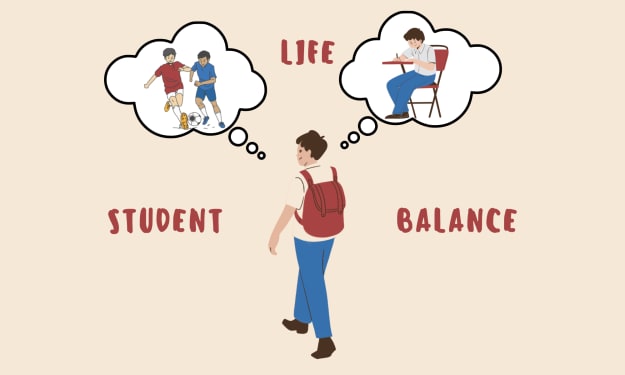The Role of Education in Shaping Future Generations
The Role of Education in Shaping Future Generations

Education is a critical component of society that plays a pivotal role in shaping the future generations. It is the foundation upon which individuals develop their knowledge, skills, values, and attitudes that shape their perspectives, decisions, and actions throughout their lives. Education goes beyond academic learning; it encompasses a holistic approach that nurtures the intellectual, social, emotional, and ethical growth of individuals. In this article, we will explore the multifaceted role of education in shaping future generations, examining its significance in fostering personal development, promoting societal progress, and addressing global challenges.
Personal Development
Education is instrumental in fostering personal development in individuals, equipping them with the knowledge, skills, and values necessary to succeed in life. From early childhood education to higher education, the learning process facilitates cognitive, emotional, and social growth. Education provides a foundation for acquiring literacy, numeracy, critical thinking, problem-solving, communication, and other essential skills that enable individuals to navigate the complexities of the modern world.
Moreover, education contributes to the formation of character and values. It instills in individuals a sense of morality, ethics, empathy, and respect for diversity. Education helps individuals develop self-awareness, emotional intelligence, and social skills, enabling them to establish healthy relationships, resolve conflicts, and contribute positively to their communities. It also promotes creativity, curiosity, and a lifelong love for learning, encouraging individuals to pursue personal growth and continuous improvement.
Furthermore, education empowers individuals by providing them with opportunities to explore their interests, passions, and talents. It exposes them to diverse knowledge and perspectives, broadening their horizons and enabling them to discover their unique strengths and potentials. Education encourages individuals to set goals, pursue dreams, and overcome challenges, fostering resilience, perseverance, and a growth mindset. It equips them with the knowledge and skills necessary to make informed decisions about their careers, finances, health, and personal well-being, empowering them to lead fulfilling and purposeful lives.
Societal Progress
Education is also crucial for promoting societal progress. An educated population is the foundation of a prosperous, inclusive, and democratic society. Education plays a pivotal role in shaping the values, attitudes, and behaviors of individuals, contributing to the formation of an informed, engaged, and responsible citizenry. It fosters civic participation, social cohesion, and a sense of belonging, strengthening the social fabric of a society.
Education also plays a crucial role in promoting social mobility and reducing inequality. It serves as a pathway to economic opportunities, enabling individuals to access better jobs, higher incomes, and improved living standards. Education equips individuals with the skills necessary to compete in the global economy and adapt to the changing demands of the labor market. It also promotes entrepreneurship, innovation, and economic growth, contributing to the prosperity of individuals, communities, and nations.
Moreover, education promotes cultural preservation, diversity, and inclusion. It helps individuals understand and appreciate their own culture and heritage, as well as the culture and heritage of others. Education fosters tolerance, empathy, and respect for diversity, promoting harmonious coexistence among individuals from different backgrounds, religions, and cultures. It also encourages individuals to become global citizens who are aware of and engaged in addressing global challenges such as climate change, poverty, inequality, and social justice.
Furthermore, education plays a critical role in promoting peace, democracy, and human rights. It fosters critical thinking, media literacy, and an understanding of democratic values and institutions. Education promotes tolerance, mutual respect, and dialogue, enabling individuals to resolve conflicts peacefully and participate actively in democratic processes. It also raises awareness about human rights, social justice, and sustainability, empowering individuals to become advocates for positive change in their societies and the world.
The importance of education in addressing global challenges cannot be overstated. In an interconnected and rapidly changing world, education plays a crucial role in equipping individuals with the knowledge, skills, and values necessary to understand, engage with, and address complex global issues. In this section, we will explore the significance of education in addressing some of the most pressing global challenges of our time.
Climate Change: Climate change is one of the greatest challenges facing humanity today. Education plays a critical role in raising awareness about climate change, its causes, impacts, and potential solutions. Education equips individuals with scientific knowledge, critical thinking skills, and a sense of environmental responsibility, enabling them to understand the urgency of addressing climate change and take informed actions to mitigate its impacts. Education promotes sustainable practices, such as conservation, waste reduction, and renewable energy, and encourages individuals to become advocates for climate action at the local, national, and global levels.
Poverty and Inequality: Poverty and inequality are persistent global challenges that require multifaceted solutions. Education plays a vital role in breaking the cycle of poverty by providing individuals with the skills and knowledge necessary to access economic opportunities and improve their livelihoods. Education promotes inclusive and equitable access to quality education, particularly for marginalized and disadvantaged groups, such as girls, refugees, and people with disabilities. It also fosters a sense of social justice, empathy, and solidarity, empowering individuals to advocate for policies and programs that address poverty and inequality at the systemic level.
Health and Well-being: Health and well-being are fundamental human rights, and education plays a critical role in promoting them. Education equips individuals with the knowledge and skills necessary to understand and adopt healthy behaviors, such as proper nutrition, hygiene, and sexual and reproductive health. It also raises awareness about mental health, substance abuse, and other health-related issues, promoting positive attitudes and behaviors that contribute to overall well-being. Education empowers individuals to make informed decisions about their health, seek healthcare services, and become advocates for health promotion and disease prevention.
Global Citizenship: In an increasingly interconnected world, global citizenship is becoming more important than ever. Education plays a crucial role in promoting global understanding, intercultural competence, and a sense of global citizenship. Education exposes individuals to diverse perspectives, cultures, and global issues, fostering empathy, tolerance, and respect for diversity. It also promotes critical thinking, media literacy, and information literacy skills, enabling individuals to navigate the complex landscape of global challenges and become informed and engaged global citizens. Education encourages individuals to take action on global issues, such as poverty, inequality, human rights, and environmental sustainability, through advocacy, volunteerism, and social activism.
Conflict Resolution and Peacebuilding: Conflict and violence continue to be significant global challenges that threaten peace and security. Education plays a crucial role in promoting peacebuilding and conflict resolution skills, such as communication, negotiation, and mediation. It fosters tolerance, empathy, and understanding of diverse perspectives, promoting peaceful coexistence among individuals from different backgrounds, religions, and cultures. Education also raises awareness about human rights, social justice, and the consequences of violence, empowering individuals to become advocates for peaceful solutions to conflicts at the local, national, and global levels.
Technological Advancement and Innovation: Rapid technological advancement is transforming the world and presenting both opportunities and challenges. Education plays a critical role in preparing individuals for the digital age, equipping them with digital literacy, computational thinking, and problem-solving skills. Education fosters creativity, innovation, and adaptability, empowering individuals to harness technology for positive change in various fields, such as healthcare, agriculture, energy, and education. Education also promotes ethical and responsible use of technology, including issues such as data privacy, cybersecurity, and digital citizenship.
About the Creator
Taimoor Khan
Here you can find JOURNALS, ARTICLES AND ESSAYS on different topics.
Enjoyed the story? Support the Creator.
Subscribe for free to receive all their stories in your feed. You could also pledge your support or give them a one-off tip, letting them know you appreciate their work.






Comments
There are no comments for this story
Be the first to respond and start the conversation.